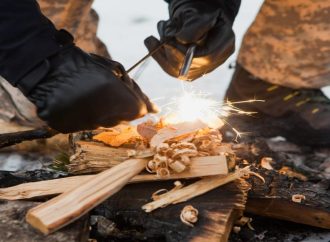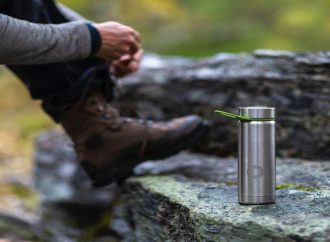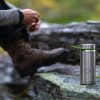In a world of uncertainty and potential disaster, being prepared is not merely a luxury but a necessity. The concept of SHTF has become a popular term among preppers and survivalists, representing a scenario where society faces a catastrophic event or collapse. In such situations, the conventional means of commerce and exchange may cease to
In a world of uncertainty and potential disaster, being prepared is not merely a luxury but a necessity. The concept of SHTF has become a popular term among preppers and survivalists, representing a scenario where society faces a catastrophic event or collapse.
In such situations, the conventional means of commerce and exchange may cease to exist, leaving individuals to rely on alternative methods to barter items in SHTF for obtaining essential goods and services.
One such method is bartering, an age-old practice that dates back to the earliest civilizations. Bartering involves the exchange of goods or services without the use of currency. It is a system built on mutual benefit and resourcefulness, enabling individuals to obtain what they need by trading items they possess.
In a post-apocalyptic or survival scenario, the importance of bartering cannot be overstated. When traditional supply chains break down, and access to goods becomes limited, having a stockpile of barter items can mean the difference between survival and desperation. This form of trade allows individuals to acquire vital supplies, tools, or services that they may not possess themselves and cannot obtain in any way.
Throughout history, various items have emerged as valuable barter goods. These items possess qualities that make them universally desirable, regardless of the specific circumstances. From ancient times to the modern era, the barter system has thrived due to its adaptability and versatility.
In this article, we will explore the world of barter items in SHTF scenarios, focusing specifically on the UK context. We will delve into the essential trade goods that hold significant value in survival situations, discuss the skills required for successful bartering, and provide insights into safe and effective bartering practices.
So, if you’ve ever wondered what items to stockpile for trade in a post-apocalyptic world, or if you’re simply interested in honing your bartering skills, this comprehensive guide for British preppers is here to help. Let’s dive in and uncover the key essentials for bartering in SHTF scenarios, ensuring your preparedness for whatever challenges lie ahead.
The Importance of Bartering in Survival Situations

In the face of a potential collapse of the economy or breakdown of traditional currency systems, the value of paper money or electronic transactions can quickly diminish.
In SHTF scenarios, when trust in financial institutions wavers and access to cash becomes limited or obsolete, especially with the advent of CBDCs in the UK and around the world, bartering emerges as a vital means of acquiring essential goods and services.
Bartering becomes a primary method of exchange in survival situations due to its inherent simplicity and versatility. Unlike currency, which derives its value from societal consensus, bartering is based on the tangible worth of the goods or services being traded. In a post-apocalyptic world, where traditional supply chains and industries may no longer function, the ability to trade goods and skills becomes paramount for survival.
Real-life examples throughout history demonstrate the effectiveness and importance of bartering in crisis situations. During times of war, when resources are scarce and access to traditional commerce is disrupted, communities often resort to bartering as a means of acquiring necessities.
In World War II, for instance, people in war-torn Britain would barter food, clothing, and various supplies to meet their daily needs. This practice allowed individuals to survive and thrive amidst the hardships imposed by the conflict.
Moreover, natural disasters such as hurricanes, earthquakes, or floods can severely impact local economies and infrastructure. In the aftermath of such events, communities often rely on bartering to rebuild and sustain themselves. People trade tools, construction materials, and skills to repair damaged structures, access clean water, and provide medical aid.
Bartering not only fulfills practical needs in survival situations but also fosters a sense of community and resilience. It encourages individuals to connect, collaborate, and share resources, forming bonds that contribute to their overall well-being and survival. It empowers individuals to leverage their own abilities and possessions to obtain what they require for their continued existence.
In the next section, we will explore the essential barter items that hold significant value in SHTF scenarios. These items are universally recognized as valuable and can serve as a basis for successful trade and negotiation. So, let’s delve into the world of essential barter goods and discover what you should consider stockpiling in preparation for uncertain times.
Essential Barter Items for SHTF

When it comes to bartering in SHTF scenarios, certain items have proven to be consistently valuable and in high demand. Whether you’re preparing for a localized disaster or a long-term survival situation, it’s crucial to stockpile items that possess longevity, practicality, and universal appeal. Here is a comprehensive list of essential barter items to consider:
1. Canned Food: Non-perishable food items such as canned vegetables, soups, and protein sources like canned tuna or beans are highly sought after. They provide sustenance and can be easily stored for an extended period.
Four tins of supermarket kidney beans might cost you £1.50 now, a 1kg bag of rice £2 and some chopped tomatoes for £1.50… but for someone with a hungry family to feed that’s a 3-day supply of food – what can you trade that humble £5 purchase for which will keep people alive for days? We’ll bet a lot.
2. Water Purifiers: Clean drinking water is essential for survival. Portable water filtration systems, purification tablets, or even water filters for larger quantities are invaluable trade goods.
If you have means to purify and store water at scale, it is going to be your biggest commodity to trade, as without water the body begins to fail. Purify and store in large containers like these and ration it out in bottles.
3. Medical Supplies: Basic medical supplies from a well-stocked first aid kit like bandages, antiseptics, pain relievers, and antibiotics can make a significant difference in a survival situation.
Stockpile these items for both personal use and potential bartering.
4. Seeds: In a long-term survival scenario, the ability to grow food becomes paramount. Stockpile heirloom seeds for various vegetables, fruits, and herbs.
These seeds hold the potential for sustenance and self-sufficiency.
5. Tools: Basic hand tools like knives, axes, multi-tools, and shovels are practical and versatile items highly sought after for survival purposes.
Opt for durable, high-quality tools that can withstand demanding conditions.
6. Fuel: In an energy-restricted world, fuel sources such as gasoline, propane, or firewood become valuable commodities. Stockpile fuel in appropriate containers like these 20L metal jerry cans for potential bartering.
7. Personal Hygiene Items: Don’t overlook the importance of hygiene. Stockpile items like soap, toothpaste, toilet paper (remember what was the first thing to disappear from shelves during Covid), and feminine hygiene products.
These items provide comfort and cleanliness during challenging times. Toilet rolls especially can be bought cheap and in bulk and stored in the loft or basement.
8. Batteries and Solar Chargers: In a world without consistent power sources, batteries and solar chargers and generators for electronic devices become invaluable. Consider stocking up on various sizes of batteries and portable solar chargers.
We know here in the UK there’s not a great deal of sun, but solar chargers will still charge all year round. Why not back up your supplies with chargeable batteries and a charging pack for around £20? That’s batteries for devices like MP3 players, torches and radios.
9. Clothing and Footwear: Cheap and durable clothing and footwear you can buy now in advance which is suitable for different weather conditions are always in demand. Focus on practicality and durability when selecting items for your stockpile.
Think how much someone will trade for a brand new pair of socks after theirs have worn out, or an extra thermal layer once January hits. It’s worth remembering that something which only costs £2 now might get you £20-£50 worth of gear post-SHTF.
10. Unique Items: In addition to common barter goods, consider stocking novel items that can provide value and enhance the quality of life. Information resources such as high-quality maps, survival guides, or how-to books can be highly sought after.
It of course goes without saying that you should be stacking precious metals like silver for bartering with once fiat currency collapses.
Entertainment items like books, playing cards, board games, multipurpose travel gaming sets or musical instruments can also provide a much-needed morale boost in long-term survival situations.
Remember, when choosing barter items, prioritize longevity, practicality, and universal appeal. Assess the needs and wants of potential trading partners in a survival scenario. Additionally, regularly rotate and update your stockpile to ensure the freshness and functionality of the items.
In the next section, we will discuss the skills and practices necessary for successful bartering in SHTF scenarios. So, stay tuned to enhance your bartering capabilities.
Skills as Barter Assets in SHTF Scenarios

In a post-disaster barter economy, physical items are not the only valuable assets. Skills become a currency of their own, offering individuals unique opportunities to acquire goods and services through their expertise.
The ability to contribute valuable skills can be just as important as possessing tangible goods. Here are some skills that can hold significant value in a survival scenario:
1. Medical Knowledge: In a world without easy access to healthcare, individuals with medical books, knowledge and skills become invaluable. Basic first aid, wound care, herbal remedies, or even more advanced medical training can make a substantial difference in a community’s well-being.
2. Mechanical Skills: The ability to repair and maintain machinery, vehicles, or essential equipment can be highly sought after. Skills in mechanics, engineering, or even basic carpentry can prove indispensable in a survival setting.
3. Farming and Gardening Abilities: As the need for sustainable food sources arises, individuals with farming and gardening skills hold a crucial advantage. Knowing how to cultivate crops, raise animals for food, or implement permaculture practices can provide sustenance and self-sufficiency.
4. Service Bartering: In addition to trading physical items, the concept of “service bartering” emerges, where individuals trade their time and skills instead. This can include offering labor for construction projects, providing security services, or sharing knowledge in specialized fields.
5. Unique Skills: In a barter economy, unique skills that are less common but highly valuable can become sought after. For example, brewing homemade alcoholic beverages, foraging and identifying edible plants, or even storytelling to boost morale and provide much-needed entertainment can be highly prized assets.
It’s important to consider the specific needs of a community or group when determining which skills to develop. By honing your expertise in a particular field, you position yourself as an asset and increase your opportunities for successful bartering.
In a survival scenario, it’s not just about what you have, but also about what you can offer in terms of skills and services. Building a diverse skill set increases your adaptability and value in the barter economy.
In the next section, we will explore safe and effective practices for bartering in SHTF scenarios, ensuring that your interactions are fair, secure, and mutually beneficial. So, let’s delve into the world of bartering practices to enhance your trading skills.
Safe and Effective Bartering Practices

When engaging in bartering in SHTF scenarios, it’s important to adopt safe and effective practices to ensure fair and secure transactions. Here are some tips to enhance your bartering skills and protect your interests:
1. Understand the Value of Your Items: Before entering into a barter negotiation, have a clear understanding of the value and utility of the items you possess. Assess their scarcity, practicality, and overall demand in the specific survival context.
This knowledge will enable you to negotiate from a position of strength and maximize the value of your trades.
2. Build Relationships: Bartering is not just about exchanging goods; it’s also about building relationships within your community. Establishing trust and fostering goodwill with potential trading partners can lead to more favorable deals and ongoing exchanges in the future.
Remember, a reputation for fairness and reliability goes a long way in barter economies.
3. Negotiate Effectively and Fairly: Successful bartering involves effective negotiation skills. Be open to compromise and find mutually beneficial solutions. Focus on understanding the needs and desires of the other party, and look for opportunities to create win-win scenarios.
Active listening, clear communication, and the ability to find common ground are essential for successful negotiations.
4. Prioritize Security: In any barter transaction, personal safety and security should be a top priority. When meeting with potential trading partners, choose well-populated public places or consider conducting trades in small groups.
Inform a trusted individual about your meeting arrangements and establish a system of checks and balances to mitigate the risk of fraud or harm.
5. Establish Local Barter Networks: To enhance safety and organization in bartering, consider establishing a local barter market or system among trusted community members.
This can provide a platform for regular exchanges and allow for the development of a reliable network of traders. Establish clear rules and guidelines for participation, ensuring fairness and accountability within the community.
By adhering to these safe and effective bartering practices, you can engage in mutually beneficial trades while safeguarding your well-being and interests.
In the next section, we will explore unconventional and out-of-the-box ideas for barter items that can expand your trading opportunities. So, stay tuned for innovative suggestions to enhance your barter repertoire.
The Dangers of Bartering and How to Mitigate Them 
When you barter items in SHTF can be a valuable and essential practice in survival scenarios, it’s important to be aware of potential risks and take steps to mitigate them. Here are some strategies to help you navigate the dangers of bartering and ensure safety and fairness:
1. Exploitation, Theft, and Violence: One potential risk of bartering is encountering unscrupulous individuals who may attempt to exploit or deceive you. To mitigate these risks, exercise caution and trust your instincts.
Avoid engaging in transactions with individuals who display suspicious behavior or offer deals that seem too good to be true. When possible, barter within trusted networks or communities where reputations are known and trust is established.
2. Establish Clear Rules and Guidelines: Consider using a third-party mediator or participating in a barter system with established rules and regulations. This can help ensure fairness and resolve any disputes that may arise.
These systems often operate based on mutual trust and accountability, providing a secure platform for exchanging goods and services.
3. Building Trust and Community: Trust is paramount in a barter economy. Invest time and effort in building relationships within your community, as a strong sense of trust can deter potential opportunistic behavior.
Participate in local events, attend meetings, and engage in communal activities to foster a sense of unity and shared purpose. By working together and supporting one another, you can create a safer and more resilient barter community.
4. Ethical Considerations: Bartering should be conducted with ethical considerations in mind. Treat others with respect, fairness, and honesty, ensuring that your actions align with your moral compass.
Consider the needs and vulnerabilities of others and strive for equitable exchanges that benefit all parties involved. Upholding a strong ethical foundation within the barter economy helps to maintain a sense of integrity and promotes a healthier and more sustainable trading environment.
5. Personal Safety Measures: Prioritize personal safety in all bartering transactions. Meet in public places whenever possible and consider bringing a trusted companion along for added security.
It’s also wise to inform someone you trust about your meeting arrangements, including the location and time of the trade. Trust your instincts and be cautious when dealing with unfamiliar individuals or situations.
By being mindful of these risks and implementing appropriate precautions, you can engage in bartering with reduced vulnerability and increased peace of mind.
In the next section, we will explore unique and unconventional ideas for bartering that can expand your trading opportunities and enhance your preparedness. So, get ready to think outside the box and discover innovative ways to thrive in a barter economy.
Conclusion
In SHTF scenarios, where traditional systems of commerce and exchange may falter, bartering emerges as a crucial method of obtaining essential goods and services. Throughout history, bartering has played a vital role in survival situations, providing individuals with the means to acquire what they need when traditional supply chains break down.
In this article, we explored the importance of bartering in survival scenarios and discussed essential barter items for SHTF situations. We highlighted the value of skills as barter assets, emphasizing the significance of building relationships and considering service bartering as an alternative. We also delved into safe and effective bartering practices, highlighting the importance of security, trust, and ethical considerations.
Now is the time to start preparing for uncertain times. Begin by stockpiling a variety of barter items, considering their longevity, practicality, and demand. Focus on essential goods such as canned food, water purifiers, medical supplies, tools, and personal hygiene items. Don’t forget the value of unique items like information resources and entertainment options.
In addition to stockpiling, invest in developing valuable skills that can serve as assets in a barter economy. Learn first aid, acquire mechanical or farming abilities, and consider cultivating unique skills like brewing or storytelling. These skills will not only enhance your own survival but also provide opportunities for valuable exchanges in the future.
We invite you, our readers, to share your own ideas, experiences, or questions about bartering in survival scenarios. The exchange of knowledge and insights is invaluable in preparing for the unknown. Feel free to engage with us and the community as we navigate the challenges of bartering in SHTF situations.
Remember, preparedness is a continuous journey. Stay informed, stay connected, and continue to build your resilience in the face of uncertainty.





















